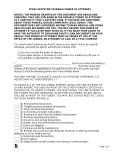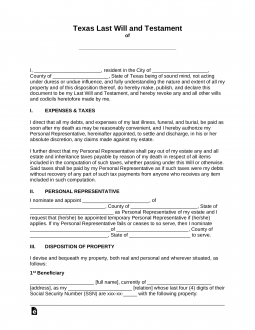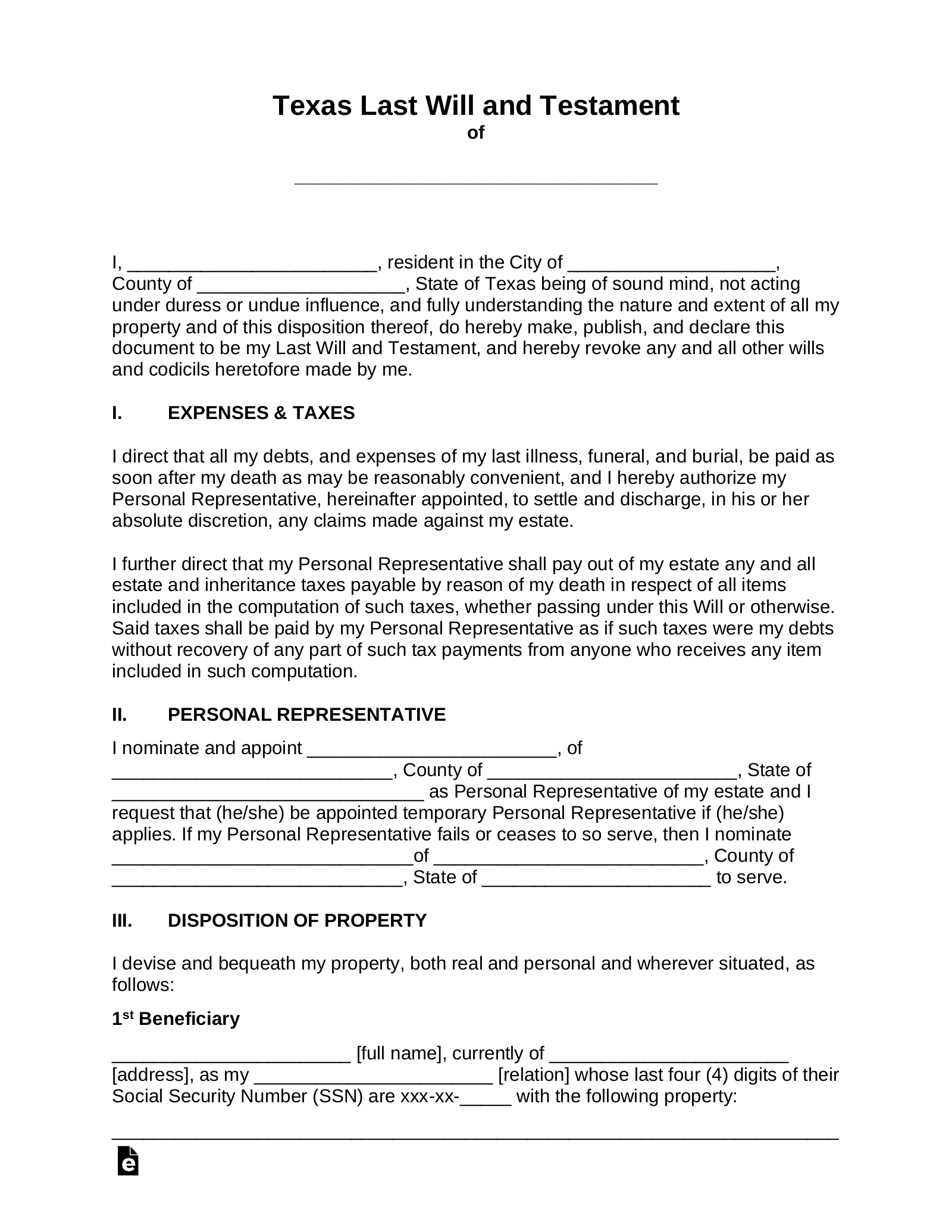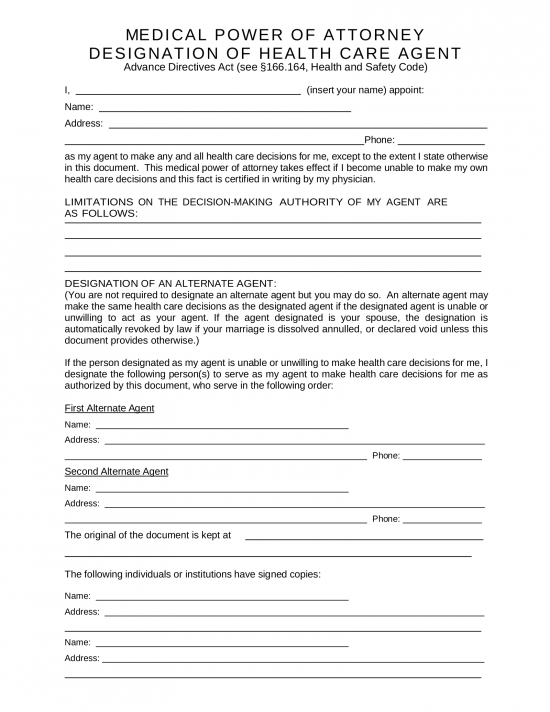Updated November 15, 2023
A Texas last will and testament is a legal document that outlines an individual’s wishes regarding the distribution of their estate among beneficiaries upon their death. A will provides the individual (“testator”) with the ability to choose who inherits certain portions of their estate, such as real and personal property, fiduciary assets, insurance policies, other financial accounts, and other assets or property.
Signing Requirements
Must be signed by the testator and by two or more credible witnesses who are at least 14 years of age. They must write their names to the will in their own handwriting in the testator’s presence.[1]
State Definition
“Will” includes a codicil and a testamentary instrument that merely: (a) appoints an executor or guardian; (b) directs how property may not be disposed of; or (c) revokes another will.[2]
Related Forms
Download: PDF
 Durable (Financial) Power of Attorney
Durable (Financial) Power of Attorney



